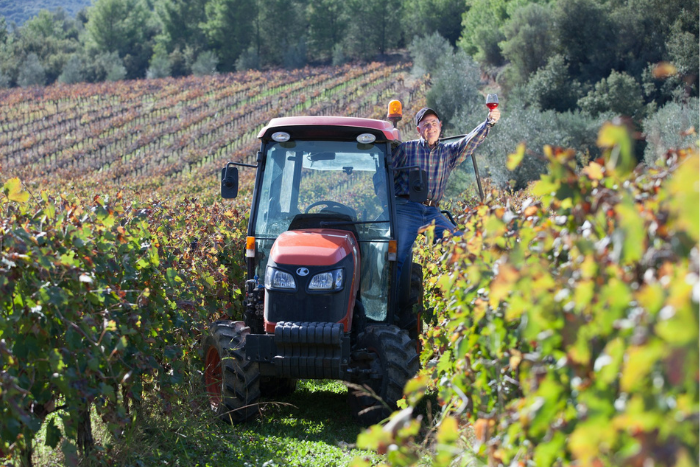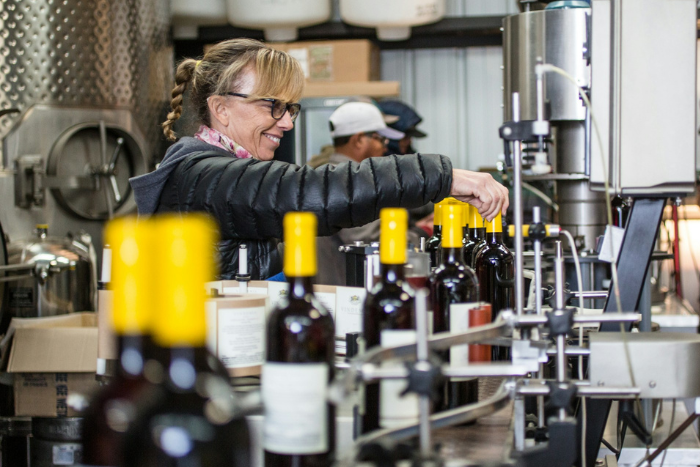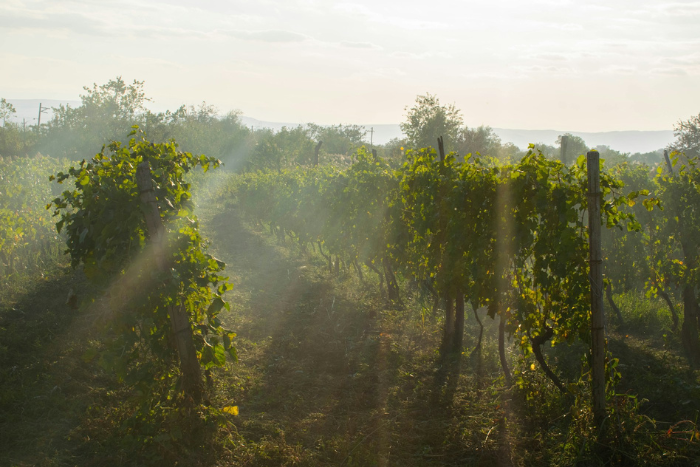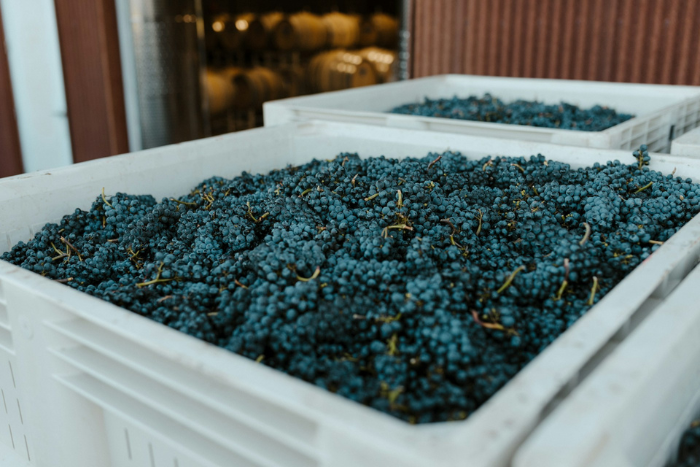Sustainability and Organic Winemaking in Spain
Discover Spain's sustainable and organic winemaking journey. From eco-friendly practices to innovative techniques, explore the future of conscious viticulture.

In Spain's picturesque wine region, sustainability and organic winemaking have become increasingly prominent. The combination of centuries-old winemaking tradition and environmentally friendly practices has made Spain a world leader in this field.
From Rioja's majestic hills to Andalusia's sunny lands, winemakers are adopting sustainable and organic practices to preserve the natural environment and deliver exceptional wines.
In this article, we will explore how the Spanish wine industry has embraced sustainability and organic production, from grape growing to final bottling. Join us on a journey through Spain's most emblematic vineyards as we unravel the secrets behind the growing movement towards a more conscious and planet-friendly viticulture.
Sustainable winemaking in Spain
Thanks to practices such as organic farming, efficient water management and renewable energy, Spanish wineries are leading the way towards a more sustainable future for the wine industry.
One of the most interesting innovations is the use of regenerative viticulture techniques, which seek to restore and improve soils through practices such as no-till farming and crop diversification. This not only benefits the natural environment but also contributes to the uniqueness and complexity of the wines produced.
Additionally, many wineries are adopting eco-friendly packaging, such as lightweight bottles or recycled materials, thus reducing their environmental footprint.
Another crucial aspect is supporting local communities through decent employment and ethical business practices. By working hand in hand with local residents, sustainable wineries not only participate in cultural preservation but also promote a holistically sustainable model that values both the natural and human environment.

This social integration further strengthens the unique identity behind sustainable Spanish wine.
Organic winemaking in Spain
Instead of relying on synthetic chemicals, organic wine producers in Spain opt for practices such as crop rotation, natural fertilization, and biological pest control to maintain vineyard health. This philosophy is reflected in the grapes harvested, which often exhibit purer flavours and an authentic expression of the terroir.
Furthermore, the growing interest in organic wine has led to a significant increase in the presence of certified wineries throughout Spain. Consumers can now enjoy a wide range of Spanish organic wines, from crisp whites to intense reds, each with its own distinctive character based on local varieties and terroir conditions.

By choosing organic Spanish wines, you not only support agricultural sustainability but also experience a more genuine connection with the land and its fruits through the centuries-old art of wine growing.
Challenges and obstacles in adopting sustainable and organic practices
One of the most important challenges is managing diseases and pests without the use of synthetic chemicals. Organic winegrowers must find alternative methods, such as the use of beneficial insects and specific cultural practices, to control these threats to grapes.
This approach requires more time and resources than using conventional pesticides but produces wines with less chemical residue.
Furthermore, another key obstacle is the resistance to change on the part of many established winegrowers and wineries. Implementing sustainable and organic practices can involve significant restructuring of existing operations, which is often perceived as costly and uncertain.
Convincing traditional producers to adopt more environmentally friendly methods may require additional education, financial support and incentives. However, the growing demand for natural and sustainable wines is creating momentum toward this shift, suggesting a promising future for the organic wine industry.
These challenges underscore the continued need for innovation and collaboration in the wine sector to overcome obstacles around sustainable and organic practices.
With a renewed commitment to research, specialized training and government support, it is possible to pave the way to a future where sustainable vineyards are not only economically viable but also beneficial for the environment.
Organic and sustainable wines
Wineries leading organic and sustainable winemaking
Wineries such as Pago de los Capellanes in Ribera del Duero have adopted ecological and sustainable practices, including the use of renewable energy and responsible water management. Furthermore, its commitment to biodiversity is reflected in the protection of the natural habitats that surround its vineyards.
A notable example is the Pares Balta Winery, located in the Penedés region. This winery has implemented biodynamic cultivation methods, minimizing environmental impact and promoting a balanced ecosystem for its vineyards.
Another pioneering winery in this field is Dominio de Pingus, located in the Ribera del Duero wine region. They use natural techniques that preserve the purity and authenticity of their wines, betting on ecological viticulture that stands out for its commitment to sustainability.
These wineries represent a new wave of innovation and environmental awareness within the Spanish wine world, demonstrating that it is possible to produce exceptional wines without compromising the environment.
If you are interested in knowing more about organic wineries in Spain, please read our article The Top 10 Organic Wineries to Visit in Spain.
The future of sustainable and organic winemaking in Spain
The future of sustainable and organic winemaking in Spain looks bright, as Spanish vineyards are adopting environmentally friendly practices. With climate change in mind, many winegrowers are investing in organic growing methods to preserve soil quality and ensure the long-term health of their vines.

This transition towards more sustainable wines not only benefits the environment but is also generating great interest among conscious consumers, who are looking for less impactful wine products.
Furthermore, technological innovation is playing a crucial role in this shift towards more sustainable wine production. From using drones to monitor soil conditions to developing smart irrigation systems, Spanish wineries are embracing innovative solutions to maximize efficiency and minimize their ecological footprint.
This holistic approach to sustainable viticulture positions Spain as an emerging leader in this field and promises to promote an increasingly environmentally responsible wine industry.
In summary, the combination of winemaking tradition, environmental commitment and technological advances is paving the way to a vibrant future for organic and sustainable winemaking in Spain. With growing global demand for more eco-friendly options, this trend is likely to continue gaining momentum and redefine the Spanish wine landscape in the coming years.
FAQs
What is sustainable viticulture?
Sustainable viticulture refers to agricultural practices that seek to preserve natural resources and minimize environmental impact during grape cultivation.
What is the difference between ecological wine and organic wine?
Ecological wine is produced following specific ecological farming regulations, while organic wine is made with grapes grown without pesticides or chemical fertilisers.
How is a vineyard certified as sustainable or organic in Spain?
A vineyard can obtain sustainability or organic certifications through audits carried out by specialized entities that verify compliance with established standards.
How do sustainable practices influence the quality of wine?
Sustainable practices promote the health of the vineyards, which translates into healthier and better quality grapes, ultimately reflected in the final product: wine.
Is it true that sustainable wines are more expensive?
Not necessarily. Although some may be priced slightly higher due to the additional cost of production, there are affordable options that offer excellent value for money.
You May Be Also Interested in
- Types of Spanish Wines
- Winemaking Process in Spain
- Viticulture in Spain
- Spanish Food and Wine Pairings
- Major Spanish Wineries and Producers
- Spanish Wine Classifications
- Spanish Rosé Wine Guide
- 5 Spanish Wines to Serve with Vegetable Dishes
- An introductory guide to Spanish wine
- Spain’s 10 most expensive red wines




